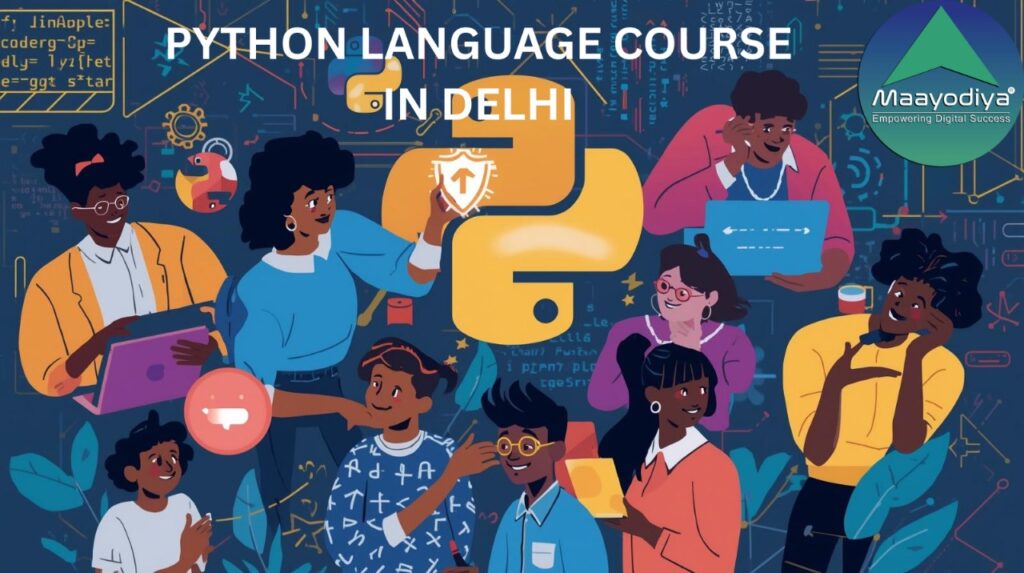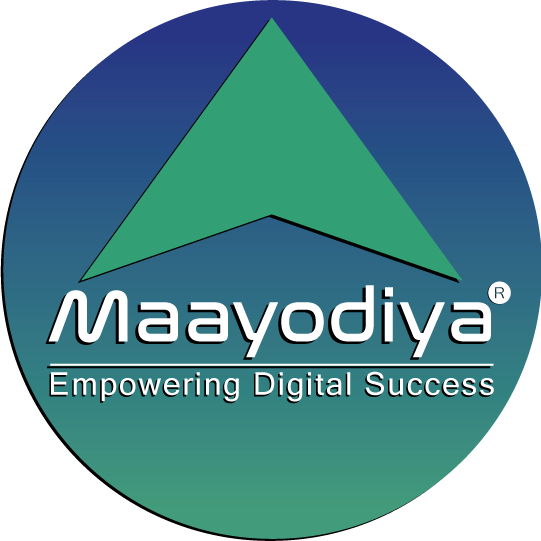
Python Language Course in Delhi
Python has become the lingua franca of modern programming. From web development and automation to data science, machine learning and DevOps, Python’s clean syntax and huge ecosystem make it one of the best languages to learn today. If you’re in Delhi and thinking about taking a Python language course, this article will walk you through what to expect, how to choose the right program, career outcomes, and tips to get the most out of your learning — all in a format you can use as a backlink or course description.
Reasons for learning Python, and especially why in Delhi
There are good reasons why you should learn Python: it is readable, versatile, and there is a large community and a rich set of libraries (e.g. NumPy, Pandas, Flask, Django, TensorFlow) available that support Python. These attributes can make it a candidate for use in:
- Beginners — has a gentler learning curve and all learners receive immediate feedback in the learning to code process.
- Web developers — frameworks like Django and Flask speed up development for web applications.
- Data professionals — foundational libraries for performing data analysis and analysis of data for machine learning.
- Automation / Testing — able to script repetitive tasks as well as build & maintain test suites for a given application.
- Researchers — prototype quickly as well as perform scientific computing.
Why should I learn Python specifically in Delhi? Delhi is an excellent place to learn Python programming because it has a good amount of training offerings in both classroom and online environments, professional tech meetups and hackathons take place frequently, and companies in and around Delhi seek Python talent for their startup and corporate offices. The available program formats vary from weekend classes, immersive boot-camps, to online courses with in-class or in-person workshops, to match the participant’s preferred pace, schedule, and budget.
Course Target Audience
Typically a well-designed Python course in Delhi would attract:
- True beginners with no programming experience.
- Students looking to add something useful to their CV.
- Currently working professionals trying to Upskill, or trying to transition to a new role (QA engineers, data analysts, testers, system admins).
- Recent college graduates looking to transition into internships or entry level Developer roles in the industry.
- Entrepreneurs or freelancers who basically want to build quick prototypes and move on.
Frequently, the course will have specific tracks that students can select based on their area of interest. Such as: a separate track on – “Web Development”, or “Data Science & Machine Learning” track, “Automation & Scripting” track, or Generalist type of Python Developer course.
A standard part-time course syllabus/lesson plan (8-16 weeks) in a Python program will typically cover the following:
1. Introduction to the language (Core Python)
- Syntax, variables, data types, operators
- Flow control (If statements, loops)
- Functions, Modules, packages.
- File interacting- reading and writing, exceptions
- Managing a virtual environment and packages (ie, pip, venv)
2. Data Structures and OOP
- Lists, tuples, sets and Dictionaries
- Comprehensions, iterators and generators
- Object Oriented programming, classes, inheritance, polymorphism.
- Utilities in the standard library (ie, datetime, collections, os, sys)
3. Web Development (optional curricular track)
- HTTP Basics, REST
- Flask or just a nuance of Django (responsible for generating HTML)
- APIs, templates, basic-authentication
- Basic database management with SQLite/PostgreSQL and ORM
4. Data Science and Machine Learning (optional curricular track)
- NumPy – pandas and data science with pandas
- Data science with exploration visualisation (ie., basic matplotlib /Seaborn)
- Basic machine learning and some scikit learn
- Supervised Machine Learning/ Unsupervised ML Learning
5. Automation Testing and DevOps (optional curricular track)
- Scripts to automate (ie. web scraping with BeautifulSoup/Requests)
- Writing unit tests (ie. unittest/pytest)
- CI/CD concepts, and some tools for automation.
6. Projects and Portfolio work
- End to end projects specific to your track.
- Using git, github for documentation and collaboration
- Demo day presentations/capstone.
Learning Strategies and Outcomes:
A high-quality course blends theory and practice, or real activities:
- Live instructor-led lectures, so you can ask questions and learn from your peers.
- Experiential labs following every concept.
- Assignments and mini-projects for grading purposes, ensuring you are engaged with the material.
- Engagement and collaborative activities with peers through group work or code reviews.
- Keeps the instructor mentoring open, allowing you to address all of your questions outside of class (before the next class).
- Career support-in developing resumes; Interview prep, Interview rehearsals, and placement service when applicable.
By the conclusion of the course you will:
- Be able to write and read idiomatic Python code.
- Be able to develop minimally functional web applications or data pipelines depending on the track.
- Be able to use Git and work with other students on code (or other) class assignments.
- Have a project that belongs in your portfolio or on your GitHub.
Selecting the Appropriate Python Program in Delhi
With numerous courses available, consider these variables:
- Outcomes and track alignment — Does course syllabus relate to your goals (web-based, data-driven or automation)?
- Instructor experience — Practitioners from the field can provide real-world experiences.
- Form of a class — Weekend vs weekday vs intensive route of delivery; online vs classroom experience.
- Batch size — Smaller batch sizes usually will yield more personal contact time.
- Project & Portfolio Focus — Make sure the program includes capstone project associated into the program syllabus that could be an artifact that you can display.
- Post-program — Placement assist, alumni, and/or lifetime access are nice but not necessary features.
- Reviews & testimonials — Genuine learners who share feedback and unintended outcomes (projects, placements).
- Price vs value — Program fees range widely; consider what the program includes (mentorship hours, one-on-one mock interviews, access to program lifelong).
Career avenues and salary expectations
Python proficiencies can lead to a number of different roles. Common job roles in this discipline include:
- Junior Python Developer or Backend Developer
- Data Analyst or Junior Data Scientist
- Automation Engineer or QA Automation
- DevOps Engineer (with additional tooling)
- Full-stack Developer (with frontend skills)
The salary ranges within Delhi are based on experience, types of companies, and skills. Freshers and entry-level candidates typically start with base packages. Successful completion of a project, internship experience, or simply clarity on what track to choose will help accelerate a job search after 3-4 months of experiences. Continuously learning frameworks, updating your skills, and working with related solutions (like a cloud platforms, SQL, or ML libraries) will greatly improve employability.
Helpful practices that can ensure you maximize your own learning
- Code everyday: Some coding (even if it’s short day to day rather than really long (3 hour) once a week) is so much better to learn as if you is every day 7 times a week learning
- Build your projects as soon as you can, even if they are small scripts to solve real live problems: they teach you so much and help build confidence.
- Do open-source contribution or mini-challenges: great just for experience and building confidence.
- Document what you can: have a GitHub repo and document every project with even a short README.
- Pair programming when convenient: you learn much faster as a group.
- Attend meetups (local) or to webinars: networking is always a good for opportunities and practical knowledge.
There are many reputed institutions in Delhi that offer some Python language courses chemistry revamping or enroll into the following institutes i.e. Coding Ninjas, TechStack Academy, DUCAT India, CETPA Infotech, and Maayodiya . These institutes provide you with beginner to advanced training and former projects and practice based days, qualified trainers or faculties, flexible batch timings as well as placement assistance. This helps students develop a strong data analysis and programming skills.
In conclusion,
Whether you are looking for a career change or pursuing a new career path within your job, taking a course on Python in New Delhi is a valuable and potentially positive investment. A decent Python program will teach you its syntax as well as leverage your learning for a portfolio of real-life applications, and prepare you for interview questions. If you engage with a project-centered approach to your learning, accept failure as part of the learning process, and devote time to skills development towards a specific career development goal, you will find a Pythonors and post here, intended expectations will translate to real changes in your career.



